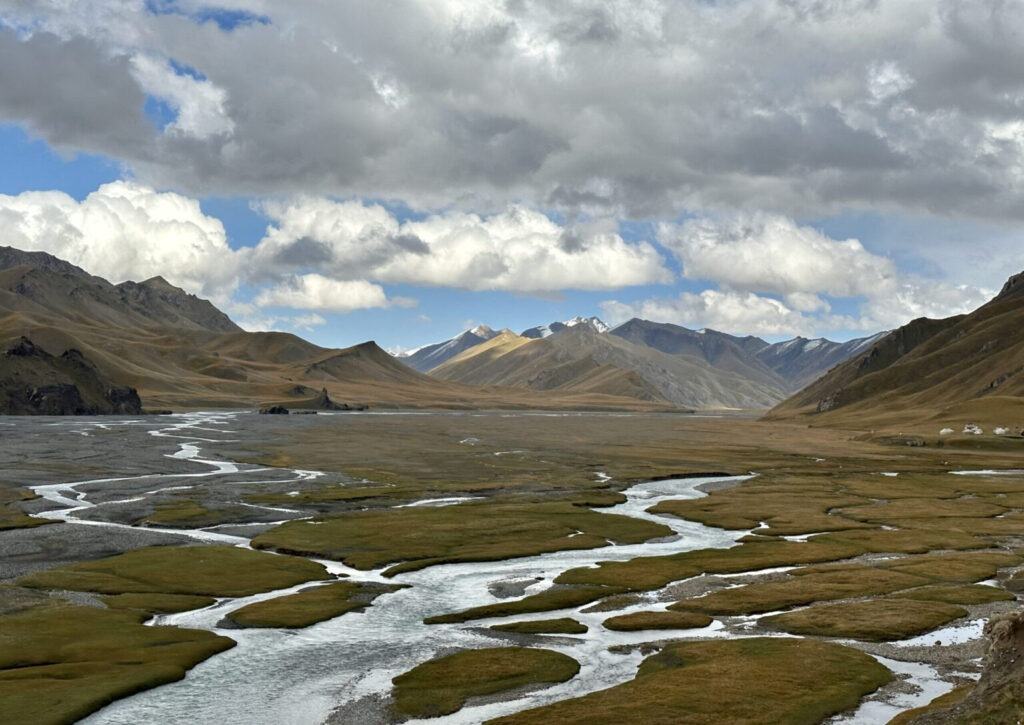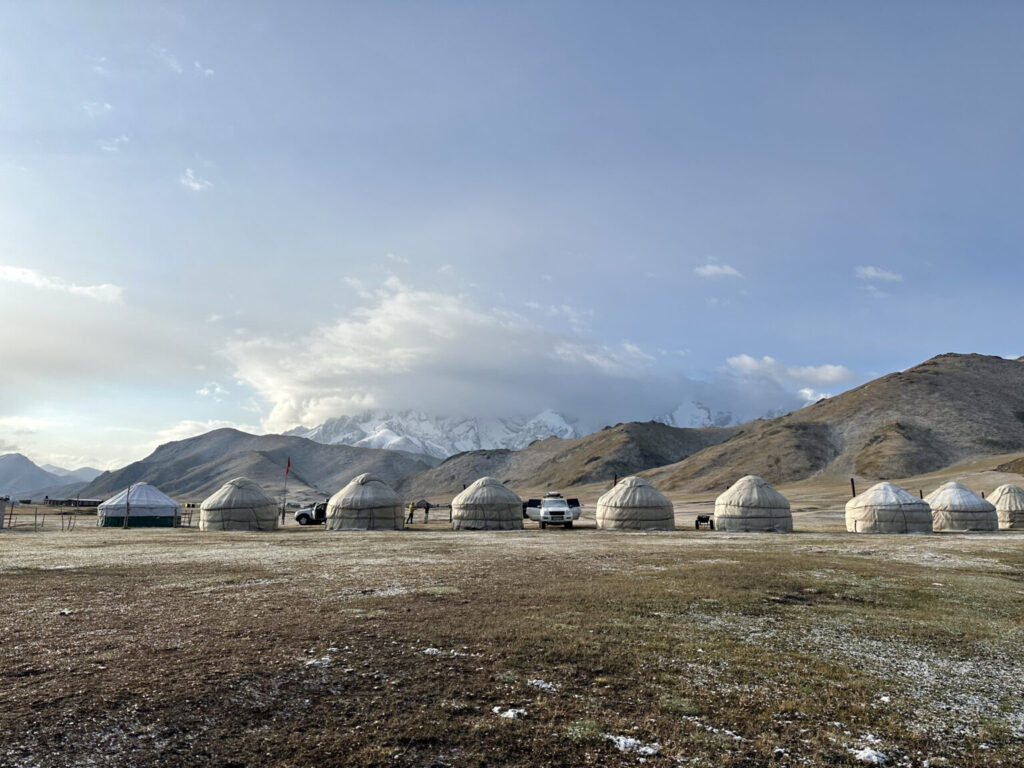Traveling to the Kyrgyz Republic offers the ultimate freedom of the great outdoors, and Lake Kel-Suu in the country’s south is among the most serene and picturesque destinations imaginable.
Whether a traveler is keen on backpacking with a tent or prefers renting a car, the following tips and guidance will ensure unforgettable nights under the stars in the mountains of the Kyrgyz Republic—a country rich in opportunities for camping holidays of any length.
Lake Kel-Suu
As one winds up into the Kakshaal Too mountain range through the Kok Kiya Valley, the sight of dazzling granite mountains plunging into turquoise waters greets the traveler. This is Lake Kel-Suu, also known as Kol-tetiri, a tranquil oasis in southern Kyrgyzstan near the Chinese border. Situated at an altitude above 3,500 meters, the location is devoid of towns, roads, and cell service.

The lake formed in a rather miraculous manner following an earthquake in the 1980s that led to a landslide. Within moments, a natural dam over the Kurumduk River was created from the falling rocks. Subsequent melting snow has since filled this space, forming a vast expanse of emerald water. The name Kel-Suu translates from Kyrgyz as “coming water.”
The depth of the lake varies from year to year, with the deepest points not exceeding 10 meters.
What is it like to visit the lake?
As the turquoise lake at the foot of the Kakshaal Too glacier comes into view, the sight of melting snow-capped peaks and the realization of having ventured deep into the wilderness can be overwhelming. The lake’s serenity transports the mind to simpler times, free from the noise and commotion of everyday life.

The water is cold, and the sky and weather are ever-changing. Kel-Suu is a location where all four seasons can manifest in the span of a single day.
To illustrate, on the first full day at Kel-Suu, the weather transitioned from a windy and rainy night to warm conditions suitable for a comfortable hike by 6 a.m. However, by midday, as a group of tourists—including a correspondent from The Astana Times—approached the lake, winter-like conditions descended, complete with howling winds and hail. As night falls, the clouds often dissipate, revealing a sky illuminated by stars and devoid of light pollution.
During the summer months, daytime temperatures range between 14 and 16 degrees Celsius and can drop below zero at night. Therefore, warm clothing and sleeping bags are strongly recommended for the trip.
How to get there?
The journey from Bishkek, the capital of the Kyrgyz Republic, to Lake Kel-Suu takes approximately 10 hours by car. The scenic array of mountains, lakes, and rivers that dot the landscape make this drive one of the most photogenic in the country. A comfortable highway spans the Kyrgyz Republic from end to end.

Naryn serves as a convenient halfway point for the journey south. Situated on the Naryn River at the foot of the Naryn-Too ridge, this city is a strategic stopover. Bus firms operate services along the route as far as Naryn, but from that point, it is advisable for travelers to either have a personal vehicle or engage local services to reach the Kok Kiya Valley, where a yurt camp is located. Though basic in amenities, the camp’s appeal lies in its tranquil atmosphere and proximity to Lake Kel-Suu.
Upon ascending from Naryn to Kok Kiya, the mountains eventually provide breathtaking views of the peaks across the valley, a welcome distraction from the bumpy road conditions that require an experienced driver.

From Kok Kiya Valley to Lake Kel-Suu, the distance is around nine kilometers. Options include hiking amid picturesque views or arranging a horse ride for approximately 1,300 som ($15) per person. Driving to Lake Kel-Suu is generally not recommended, especially for those unfamiliar with the terrain, as roads are often flooded and the absence of cellular service can lead to precarious situations.
It is worth noting that the lake is located 20 kilometers from the border with China; a border zone permit is thus required for a visit.
Source : ASTANATIMES

